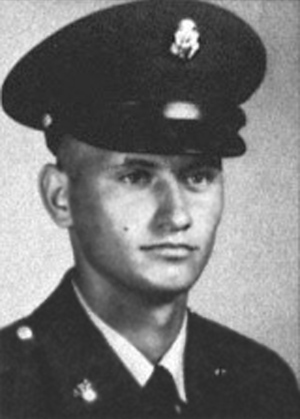
Memorial Fund

Remember...
Carmel Bernon Harvey Jr.
1946-1967
"No event in American history is more misunderstood than the Vietnam War. It was misreported then, and it is misremembered now."
Richard M. Nixon
On October 6, 1946, Carmel Bernon Harvey Jr. was born in Montgomery, West Virginia. His father was Carmel Bernon Harvey, and his mother was Marcella Christian Harvey. He had a younger brother named Clyde Harvey. At some point in his childhood, the Harvey family moved to Chicago, Illinois, where he attended and graduated from George Washington High School in Chicago, Illinois, in 1965.
During his childhood, there was a lot of tension while he was growing up in Chicago. The tension was between whites and African Americans. The whites wanted all white schooling for their children and all white neighborhoods to live in. He grew up in a time of conflict and segregation. After World War II, the United States saw the Soviet Union as a viable threat, which led to the Cold War. During this time, America was on the brink of a nuclear war with the Soviet Union. Kids were told in case of a nuclear strike to hide under their desks to protect them from the blast. They were taught to trust no one from the Soviet Union, in fear that the person could be a Soviet spy.
America officially entered combat in the Vietnam War on March 8, 1965, as the first combat troops that were deployed were the 9th Marine Expeditionary Brigade. These were real fighting men as the U.S. already had 23,000 troops in Vietnam as advisors and intelligence gathers. The U.S. Air Force and Navy conducted aerial bombardments against North Vietnam targets beginning on March 2, 1965, in response to the attacks on a U.S. Airbase at Pleiku. This was known as Operation Rolling Thunder, which lasted until November 1, 1968.
Carmel Harvey's Medal of Honor citation reads:
For conspicuous gallantry and intrepidity in action at the risk of his life above and beyond the call of duty. Sp4c. Harvey distinguished himself as a fire team leader with Company B, during combat operations. Ordered to secure a downed helicopter, his platoon established a defensive perimeter around the aircraft, but shortly thereafter a large enemy force attacked the position from 3 sides. Sp4c. Harvey and 2 members of his squad were in a position directly in the path of the enemy onslaught, and their location received the brunt of the fire from an enemy machinegun. In short order, both of his companions were wounded, but Sp4c. Harvey covered this loss by increasing his deliberate rifle fire at the foe. The enemy machinegun seemed to concentrate on him and the bullets struck the ground all around his position. One round hit and armed a grenade attached to his belt. Quickly, he tried to remove the grenade but was unsuccessful. Realizing the danger to his comrades if he remained and despite the hail of enemy fire, he jumped to his feet, shouted a challenge at the enemy, and raced toward the deadly machinegun. He nearly reached the enemy position when the grenade on his belt exploded, mortally wounding Sp4c. Harvey, and stunning the enemy machinegun crew. His final act caused a pause in the enemy fire, and the wounded men were moved from the danger area. Sp4c. Harvey's dedication to duty, high sense of responsibility, and heroic actions inspired the others in his platoon to decisively beat back the enemy attack. His acts are in keeping with the highest traditions of the military service and reflect great credit upon himself and the U.S. Army.
Article prepared by Eduardo Arnott and Maj. (Ret) T.B. McGee, George Washington High School JROTC
February 2019

West Virginia Archives and History welcomes any additional information that can be provided about these veterans, including photographs, family names, letters and other relevant personal history.